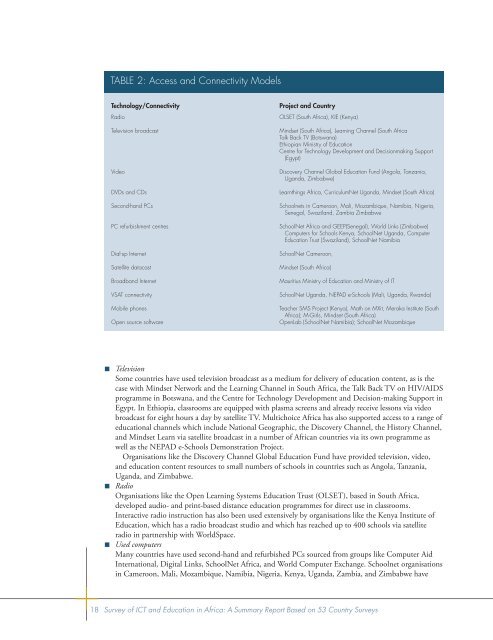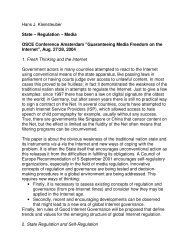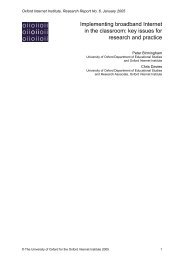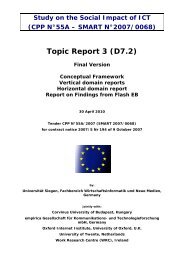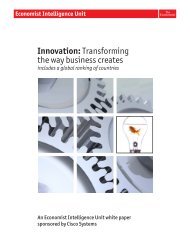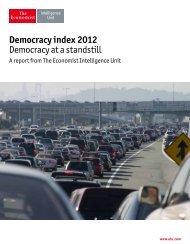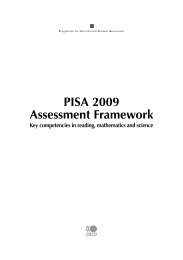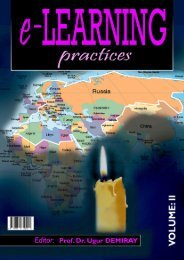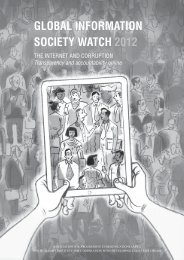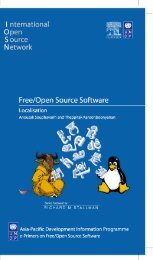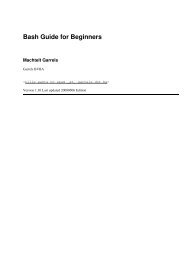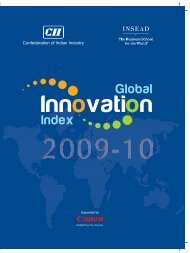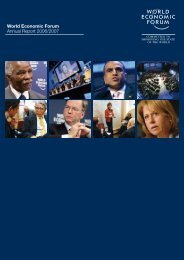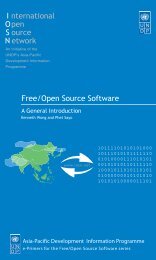SURVEY OF ICT AND EDUCATION IN AFRICA - infoDev
SURVEY OF ICT AND EDUCATION IN AFRICA - infoDev
SURVEY OF ICT AND EDUCATION IN AFRICA - infoDev
- No tags were found...
Create successful ePaper yourself
Turn your PDF publications into a flip-book with our unique Google optimized e-Paper software.
Table 2: Access and Connectivity ModelsTechnology/ConnectivityRadioTelevision broadcastVideoDVDs and CDsSecond-hand PCsPC refurbishment centresDial-up InternetSatellite datacastBroadband InternetVSAT connectivityMobile phonesOpen source softwareProject and CountryolsET (South Africa), KIE (Kenya)Mindset (South Africa), Learning Channel (South AfricaTalk Back TV (Botswana)Ethiopian Ministry of EducationCentre for Technology Development and Decisionmaking Support(Egypt)Discovery Channel Global Education Fund (Angola, Tanzania,Uganda, Zimbabwe)learnthings Africa, CurriculumNet Uganda, Mindset (South Africa)schoolnets in Cameroon, Mali, Mozambique, Namibia, Nigeria,Senegal, Swaziland, Zambia ZimbabweschoolNet Africa and GEEP(Senegal), World Links (Zimbabwe)Computers for Schools Kenya, SchoolNet Uganda, ComputerEducation Trust (Swaziland), SchoolNet NamibiaschoolNet Cameroon,Mindset (South Africa)Mauritius Ministry of Education and Ministry of ITschoolNet Uganda, NEPAD e-Schools (Mali, Uganda, Rwanda)Teacher SMS Project (Kenya), Math on MXit, Meraka Institute (SouthAfrica); M-Girls, Mindset (South Africa)openLab (SchoolNet Namibia); SchoolNet MozambiquennnTelevisionSome countries have used television broadcast as a medium for delivery of education content, as is thecase with Mindset Network and the Learning Channel in South Africa, the Talk Back TV on HIV/AIDSprogramme in Botswana, and the Centre for Technology Development and Decision-making Support inEgypt. In Ethiopia, classrooms are equipped with plasma screens and already receive lessons via videobroadcast for eight hours a day by satellite TV. Multichoice Africa has also supported access to a range ofeducational channels which include National Geographic, the Discovery Channel, the History Channel,and Mindset Learn via satellite broadcast in a number of African countries via its own programme aswell as the NEPAD e-Schools Demonstration Project.Organisations like the Discovery Channel Global Education Fund have provided television, video,and education content resources to small numbers of schools in countries such as Angola, Tanzania,Uganda, and Zimbabwe.RadioOrganisations like the Open Learning Systems Education Trust (OLSET), based in South Africa,developed audio- and print-based distance education programmes for direct use in classrooms.Interactive radio instruction has also been used extensively by organisations like the Kenya Institute ofEducation, which has a radio broadcast studio and which has reached up to 400 schools via satelliteradio in partnership with WorldSpace.Used computersMany countries have used second-hand and refurbished PCs sourced from groups like Computer AidInternational, Digital Links, SchoolNet Africa, and World Computer Exchange. Schoolnet organisationsin Cameroon, Mali, Mozambique, Namibia, Nigeria, Kenya, Uganda, Zambia, and Zimbabwe have18Survey of <strong>ICT</strong> and Education in Africa: A Summary Report Based on 53 Country Surveys


